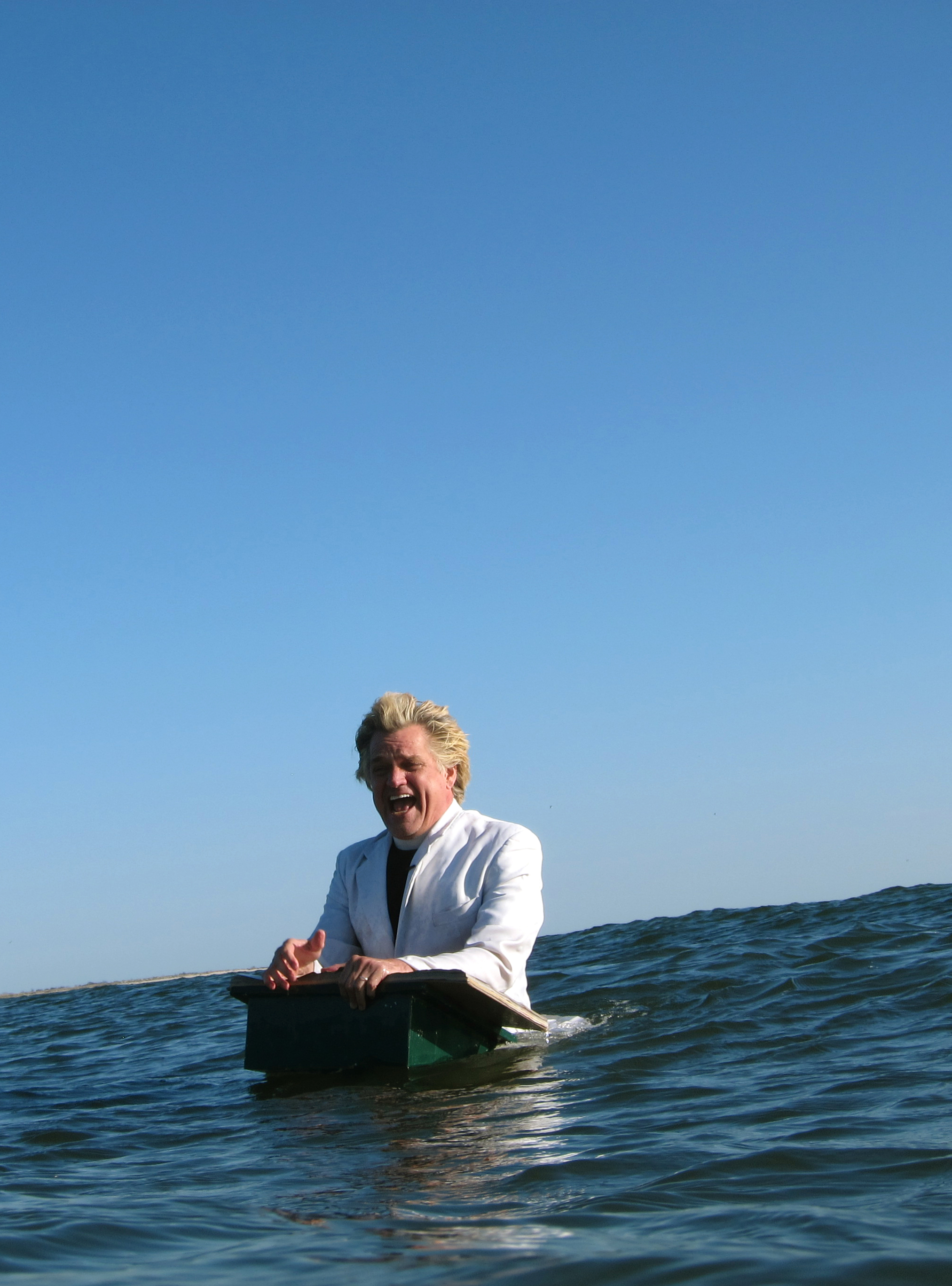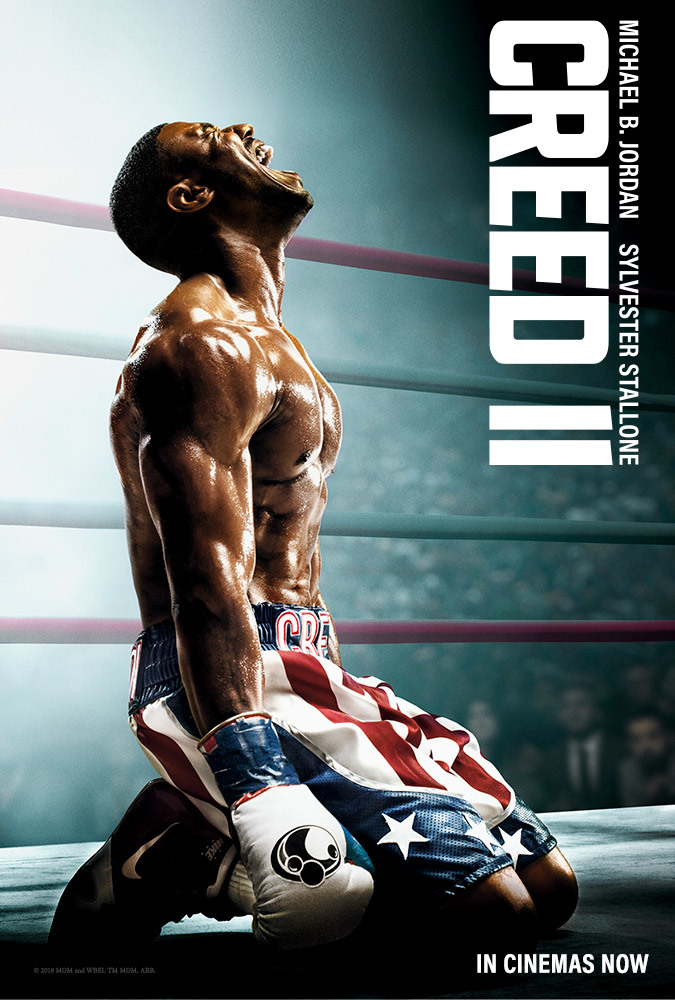“Stop! Stop shopping! Stop! Stop shopping!”
So chants the procession of the neon-clad, New York-based gospel choir into the little theatre at The Marlborough. With vibrant dungarees, mesh tops, neck ties and bodysuits, they look like something out of an 80s vision of the future as they clamber onstage, clapping, stomping and shaking tambourines.
Enter Reverend Billy, the central figure of this bizarre collective that blurs the distinctions between art and activism. He’s in his iconic and garish white suit, clutching a white sweat towel, jigging – or perhaps palpitating – with Evangelical-esque zeal.
“What the hell is going on?” might be an appropriate reader’s response to this article thus far, and it’s a sentiment that recurs throughout the viewing of Trump Depression Hotline. For some context however: this is a piece put together by the charismatic Reverend Billy and The Church of Stop Shopping, a performance and activist group opposed to consumerism. They take part in protests, demonstrations and shows like these to highlight issues of “Earth justice and social justice”, and tackle the forces of capitalism and consumerism which they see as threats – threats that they argue are epitomised by US President Donald Trump.
When they’re not exorcising cash machines or lathering themselves in oil at a bank near you, they’re up on stage, performing protest songs against everything from climate change to police violence.
There’s a phenomenal amount of talent on display: powerful and soulful singers, minimal but effective live instrumentation, and endearingly energetic performances. There’s an excellent sense of camaraderie on stage that goes way beyond having good chemistry; through their seamless interaction and improvisation, you can tell this is a group of people united by something truly powerful.
The Reverend himself is a furiously energetic entertainer (energy really is the key word to this performance), and a genuinely funny one at that. The wit that comes across in his spoken interludes, is perhaps what saves the early stages of the show from coming across as pure absurdism.
As the performance evolves however, the themes get much darker; the style is solemn, and a little sinister. This mixing of misery and absurdity, of energy and emotion, generates an atmosphere akin to the intensity of Evangelic mass hysteria. There are people crying, singing, shouting and getting out of their seats. I feel energised, somehow cosmically important. This scares me.
Reverend Billy openly declares that the “church” he represents is opposed to religion, especially to fundamentalist religions that he claims manipulate their followers. Is his adoption of the very practices those religions use then satirical? Or is he co-opting them for a cause – Earth justice and social justice – which he deems genuinely important?
Both, I think is the answer. Still it leaves me feeling a little cold. Is Reverend Billy advocating we fight fire with fire, indoctrinate everyone with a kinder poison?
My second moral qualm arises when the Reverend takes a stab at comedians who are profiting off of Trump, seemingly without implicating himself. Sure, there’s a difference between some liberal who does a skit on SNL before going back to his comfy home and forgetting about it for a week, and this genuinely radical activist group before me. But if the collective genuinely considers itself immune from this kind of commercialised humour, what is it doing touring the UK when the major issue exists 3000 miles away? What is it doing titling its tour Trump Depression Hotline when Donald Trump is on the periphery of the performance and the concept of a “depression hotline” is not mentioned outside of its title? Is that not just an entertaining, edgy phrase to appeal to masses on the left?
To their defence, I would argue that it is near impossible to effectively criticise commercialism without being in some way complicit with it. From the Reverend’s phenomenal speech on the conception of the apocalypse and our emotional disconnection with environmental change, I’m pretty sure he has the capacity to be aware of the integral contradictions and hypocrisies within his own performance – I only wish he could be more transparent about them.
Regardless of my own ethical apprehensions, it is quite undeniable that Reverend Billy and The Church of Stop Shopping put on an exceptional high-octane, emotionally powerful show. This performance was vastly unique and sensational to experience. And fearing I have made myself sound too critical, I want to whole-heartedly thank the group for all the conversations and thought-processes they have generated, both for myself and for dozens I overheard about The Marlborough in the aftermath of their extraordinary performance.
Featured Image: John Quilty




